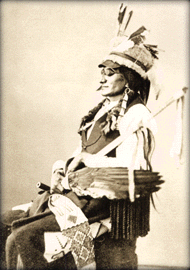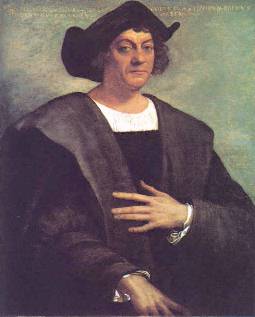

|
view operas online! |
||
|
Learn how and why Ancient Rome, Greece and Egypt were invented and crafted during Renaissance. Discover the Old Testament as a veiled rendition of events of Middle Ages written centuries after the New Testament. Perceive the Crusaders as contemporaries of The Crucifixion punishing the tormentors of the Messiah. What if Jesus Christ was born in 1053 and crucified in 1086 AD?
|
|
His life
The best available evidence suggests that Christopher Columbus (Cristoforo Colombo in Italian; Cristobal Colon in Spanish) was born in Genoa in 1451. His father was a weaver; he had at least two brothers. Christopher had little education and, only as an adult, learned to read and write. He went to sea, as did many Genoese boys, and voyaged in the Mediterranean. In 1476 he was shipwrecked off Portugal, found his way ashore, and went to Lisbon; he apparently traveled to Ireland and England and later claimed to have gone as far as Iceland. He was in Genoa in 1479, returned to Portugal, and married. His wife, Dona Felipa, died soon after his son, Diego, was born (c.1480).
By this time Columbus had become interested in westward voyages. He had learned of the legendary Atlantic voyages and sailors' reports of land to the west of Madeira and the Azores. Acquiring books and maps, he accepted Marco Polo's erroneous location for Japan--2,400 km (1,500 mi) east of China--and Ptolemy's underestimation of the circumference of the Earth and overestimation of the size of the Eurasian landmass. He came to believe that Japan was about 4,800 km (3,000 mi) to the west of Portugal--a distance that could be sailed in existing vessels. His idea was furthered by the suggestions of the Florentine cosmographer Paolo dal Pozzo Toscanelli. In 1484, Columbus sought support for an exploratory voyage from King John II of Portugal, but he was refused. The Portuguese also underestimated the distance but believed it to be beyond the capabilities of existing ships.
In 1485 Columbus took his son Diego and went to Spain, where he spent almost seven years trying to get support from Isabella I of Castile. He was received at court, given a small annuity, and quickly gained both friends and enemies. An apparently final refusal in 1492 made Columbus prepare to go to France, but a final appeal to Isabella proved successful. An agreement between the crown and Columbus set the terms for the expedition.
|
|
| top
|
|


